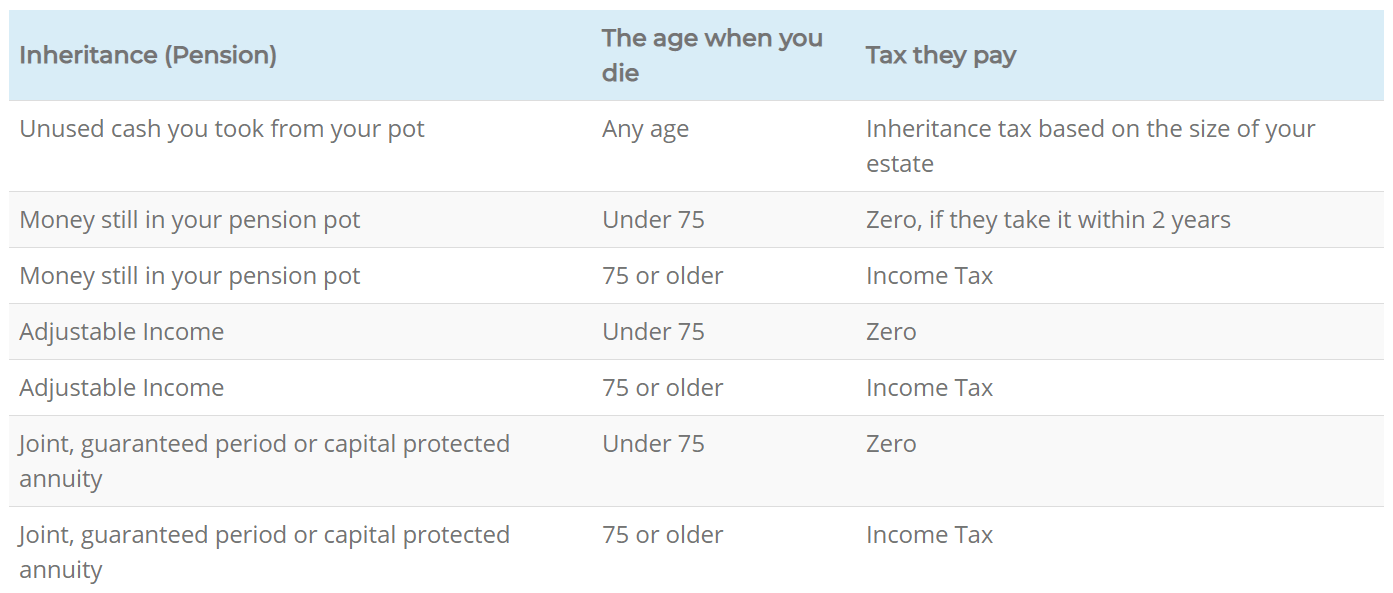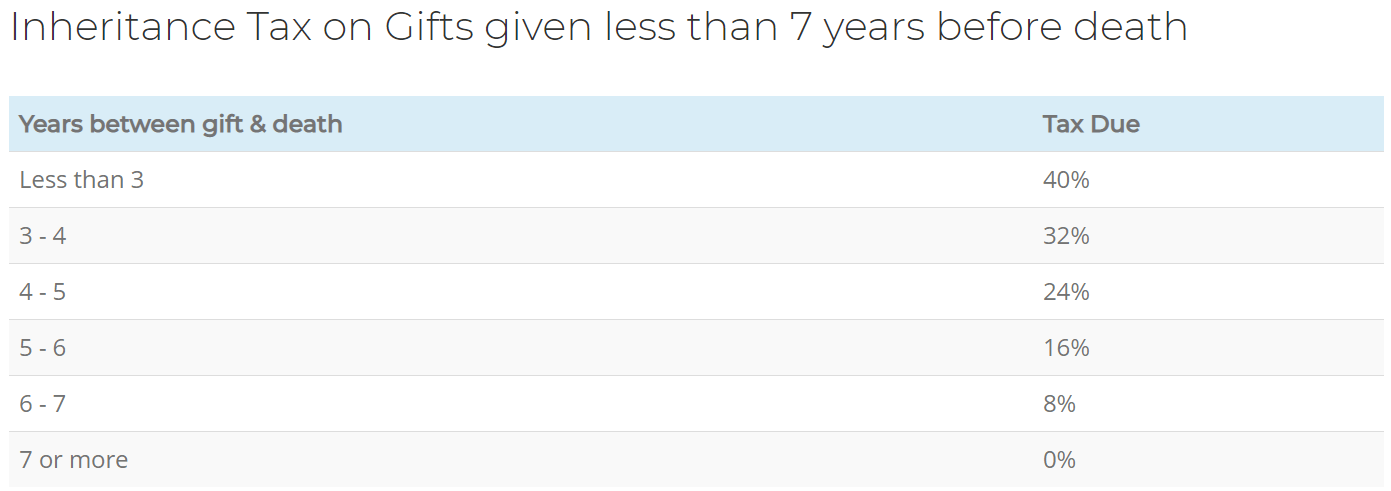Schedule a free discovery call with an Independent Financial Adviser (IFA)
As property prices rise, more and more people are being affected by Inheritance Tax. If you want to safeguard your wealth for future generations, it’s time to understand how the Inheritance Tax rules could affect you.
If you're unsure get in touch today and our Independent Financial Adviser (IFA) for personal advice.
Changes to inheritance tax
The increase in the Inheritance Tax Threshold in April 2021 will allow more individuals to pass on the family home to their direct descendants without the burden of Inheritance Tax, but each individual’s situation will be different.
The tax-free allowance for those leaving property to a child or grandchild is rising to £175,000 in 2020/21 up from £150,000 in 2019/20, meaning that some estates worth up to £1 million will pass free of inheritance tax for the first time.
Talk to a financial advisor
No commitment, no hard sales, just a quick chat with one of our pension transfer specialist to see if we can help
What is Inheritance Tax?
Inheritance Tax is a tax on the estate (the property, money and possessions) of someone who’s died.
What do you pay Inheritance tax on?
Inheritance Tax is payable at 40% on assets that exceed the ‘nil rate band’ threshold, which is currently at £325,000.
Inheritance Tax is payable on assets that are passed on when you die. Such as:
- Property and business
- Cash and investments
- Possessions – cars, jewellery, art etc
- Payouts from life insurance policies
N.B.Private Pensions are not normally liable for inheritance tax as they sit outside the estate. Read more
Example: Your estate is worth £500,000 and your tax-free threshold is £325,000. The Inheritance Tax charged will be 40% of £175,000 (£500,000 minus £325,000).
If your estate has an Inheritance Tax liability, your beneficiaries will have to pay the Inheritance Tax bill. This may not be the kind of legacy most people think of leaving behind. The good news is that there are things you can do – in your lifetime – to take care of a potential Inheritance Tax problem. But finding the right options for you will depend on your personal circumstances and receiving appropriate advice.
How could the New Inheritance Tax Rules affect me?
Although often in the news, Inheritance Tax (IHT) is still not widely understood. That’s worrying because it affects thousands of families every year. If you thought Inheritance Tax was just for extremely wealthy people to worry about, think again. The amount of Inheritance Tax collected has doubled over the last five years[1]. This is mainly due to house prices going up and pushing people above the current Inheritance tax threshold.
The Government introduced a new Inheritance Tax allowance in 2017, adding an extra tax-free amount when you own a property and leave it to your child or grandchild.
But, it’s important to understand the rules and how they could affect you; without the right advice and careful financial planning, HM Revenue & Customs could become the single largest beneficiary of your estate following your death.
Arrange a virtual coffee with an expert
No fees, no commitment, no hard sales, just a quick chat with one of our experts to see if we can help
New Inheritance Tax Rules
Under the current Inheritance Tax rules, the residence nil rate band allows homeowners to pass on some of their estate free of inheritance tax.
However, as house prices in the UK continue to climb at record levels and with thresholds frozen until 2026, fewer Estates are likely to escape Inheritance tax in the future.
If you don't have property or wish to leave your wealth to someone other than a spouse or direct descendent you could find inheritance tax going up.
Individuals with a Residential property
An additional nil rate band will be available for individuals on their main residence if it is passed on to a direct descendant. Direct descendants include children (including stepchildren, adopted children or foster children) or grandchildren.
This additional IHT-free ‘residence nil rate band’ has been frozen at £175,000 until 2026.
This extra nil rate band will be in addition to the existing nil-rate band of £325,000. As with the existing nil rate band, any unused additional nil rate band can be transferred to a surviving spouse or registered civil partner, resulting in an effective inheritance threshold of £1 million for a couple with children that they wish to inherit the property (a property worth at least £350,000 and total estate over £1 million, but not over £2 million from 2020/21, i.e. the £1 million only applies to people meeting these criteria).
Residence Nil Rate Band
The residence nil rate band is available on top of the existing IHT nil rate band of £325,000, so in 2022/23 an individual will potentially be able to leave £500,000 free of IHT. As is now the case with the standard nil rate band, where the first of a married couple to die leaves their estate to their spouse, the residence nil rate band can effectively be ‘passed on’ to the surviving spouse.
For those that are married or in a civil partnership, with a modest home and savings (and subject to the rate of house price increases in the coming years), it is therefore likely that no IHT will be payable on their estate.
How will the new IHT rules affect you if you’ve downsized
This additional nil rate band is available for individuals who have downsized or sold their home on or after 8 July 2015, as long as they pass assets of an equivalent value on to their children or grandchildren on death.
The new rules are designed to ensure that the elderly are not encouraged to retain family homes they would otherwise have sold.
Where the deceased has downscaled or sold up on or after 8 July 2015, it will still be possible to pass on the proceeds of the family home and make use of the residence nil rate band.
For example, an individual who sells their £300,000 home and purchases a £150,000 home could benefit from the maximum allowance of £175,000 in 2022/23 if they leave their home and assets of £25,000 to direct descendants on death. They will be liable to Inheritance Tax only if their total estate exceeds £500,000.
The additional residence nil rate band will not be available to the most valuable estates. The amount of residence nil rate band available will be tapered for estates worth more than £2 million.
Download our free Wealth Preservation & Estate Planning Guide today.
Discover today for more information on how to preserve your estate for future generations.
What is the Inheritance Tax threshold 2022/2023
The Inheritance tax threshold is £325,000 for the 2022/23 tax year. If you have property and leave it to a direct descendant, you can take advantage of the additional nil band residence rate of £175,000
| From | To | Additional residence nil rate band | Total for individuals | Total for couples |
|---|---|---|---|---|
| 2020-26 | £325,000 | £175,000 | £500,000 | £1,000,000 |
| 2019-20 | £325,000 | £150,000 | £475,000 | £950,000 |
| 2018-19 | £325,000 | £125,000 | £450,000 | £900,000 |
| 2017-18 | £325,000 | £100,000 | £425,000 | £850,000 |
Source: gov.uk
How Inheritance Tax Will Affect Estates Worth Over £2million
For estates worth in excess of £2 million the additional nil rate band will be tapered at a withdrawal rate of £1 for every £2 over the threshold. In 2022/23, there will be no residence nil rate band available on the first death if the net value of the deceased’s estate exceeds £2.35 million. This figure will be £2.7 million in 2022/23 on the death of the second spouse, assuming their own and their deceased spouse’s residence nil rate band are both available.
How Inheritance Tax Rules Will Affect You If You’re Single Or Have No Children
The nil rate band of £325,000 is now frozen until April 2026. This means that for the unmarried, and for those who leave no children or grandchildren, the IHT-free band will continue to be eroded by inflation.
A single person owning property in London, for example, is highly likely to leave an estate subject to IHT. The number of single and childless persons of even modest means who will fall within the IHT bracket will inevitably continue to increase.
The actions you need to take depend on your family’s needs for capital and income, as well as your current assets and your intended beneficiaries. So it’s important to speak with us for expert advice on the best options for your circumstances.
How do I avoid Inheritance tax (UK)?
Estate planning is an essential part of financial planning for most people entering retirement. The last thing anyone wants to see is their hard earned money and treasured things being needlessly handed over to the tax man.
There are several completely legitimate ways to reduce your inheritance tax liability or avoid inheritance tax altogether.
1.Make a Will
Everyone should have a Will, but it is even more important if you have children, you own property, savings, investments or insurance policies, or you own a business.
The very act of having a Will drawn up can be beneficial in that it makes you think about what you have and what you want to happen to your assets when you die. While most of us find it difficult to think about our mortality, the fact is that one day we will be gone, and we owe it to our loved ones to make the task of settling our affairs as easy as it can be.
2. Leave money in your pension
Pension rule changes mean that you can now leave your private pension to anyone you choose free of inheritance tax when you die.
Pensions sit outside the estate and are not normally liable for Inheritance Tax – so this can be a sinple and completely legitimate way to avoid inheritance tax.
Depending on how old you are when you die, your beneficiaries may need to pay income tax on any pension amount left to them.

It’s important to review and update your Pension Beneficiaries details regularly as it could overrule what you put it your Will.
If you have a Final Salary Pension read our guide on What happens to your Final Salary Pension When you Die?
Give outright gifts whilst you're still alive
If you are in reasonably good health you could consider giving someone you love an outright gift.
What and how much you wish to give your children or other members of your family is completely up to you. But to ensure that it’s IHT-free, it’s important to plan when to make that gift. So long as you live more than seven years from when you make this gift, your children or family will not have to pay IHT on your gift when you die.
Give to charity
There is no limit to how much and how often you can give to a charity without incurring IHT. You could also get some relief on other types of tax such as Income Tax when you do this. If you leave at least 10% or more of the ‘net
value’ of your estate, it’s possible to reduce the rate of Inheritance Tax on some assets from 40% to 36%, which could save you thousands of pounds.
Tax-free gifts
You can give up to £3000 a year in gifts that are exempt of IHT. You can give as many gifts of up to £250 to as many people as you want (though not to anyone who has already
received a gift of your whole £3,000 annual exemption). None of these gifts are subject to IHT.
Gifts can also be made to people getting married: up to £5,000 from each parent of the couple and £2,500 from each grandparent or more remote relative; £2,500 from the bridegroom to bride (and vice versa) and between registered civil partners; and £1,000 from anyone else.
Regular gifts from Income
If you have enough income to maintain your usual standard of living, you can also make gifts from your surplus income, for example, regularly paying into your child’s savings account, or paying a life insurance premium for your spouse or registered civil partner.
This is a good way of giving gifts on birthdays, Christmas or even to pay life insurance premiums. Grandparents can also use it to pay for things like their grandchildren’s school fees.
The rules for this exemption are complex – these gifts must be regular, so you need to be committed to keeping up with making these gifts. It’s best to speak to a legal or estate tax adviser first if you want to use this exemption.
To make use of this exemption, it’s very important that you keep very good records of these gifts. Otherwise, IHT is very likely to be due on these gifts when you die.
Keeping a record of gifts will help your executor and HM Revenue & Customs calculate how much of your estate (if any) is liable for IHT. Information to include:
- What you gave
- How much the gift is worth
- The recipient
- The date you gave it
Download our free Wealth Preservation & Estate Planning Guide today.
Discover today for more information on how to preserve your estate for future generations.
What is the 7 year rule in inheritance tax?
You are allowed to gift money property and possessions to family and friends whilst you are alive. If you do this more than 7 years before you die, the gifts are exempt from inheritance tax.
But if you don’t live more than seven years after you’ve made the gift, your loved ones might have to pay IHT.
During that seven-year period, your gift is known as a ‘potentially exempt transfer’ (or ‘PET’). If you do not survive the gift by seven years, the exemption fails. The gift is not exempt is counted as part of your estate and is subject to IHT. How much tax is due depends on when it was given.
Gifts where you still have an interest in it (no matter when you’ve given it) don’t qualify for an exemption – for example, if you give your child your house 10 years before you die, but continue to live in it for free, the house would still be considered part of your estate and therefore subject to Inheritance Tax. This is known as ‘reserving a benefit’ in the property which you gave away.
It is important to seek the advice of a tax specialist before going down any inheritance tax planning route.
Source https://www.gov.uk/inheritance-tax/gifts

A Note on Financial Security
Although it is tempting to transfer assets out of your estate in order to minimise IHT, you shouldn’t take risks with your financial stability. Ensuring that you are financially secure, particularly in retirement, should be a priority.
Once you have made the gift, you no longer have control over the asset in question, so think carefully about the implications before making a decision.
Setting up a Trust for Inheritance Tax Purposes
For high net worth individuals, it may be worth considering setting up a Trust to protect your estate. When you put cash, property or investments in a trust, provided certain conditions are met, you effectively don’t own it any more. This means it might not count towards your IHT bill when you die.
Although trusts can be a cornerstone of effective estate planning, they are complex and can be expensive. For this reason, it is important to seek professional advice when considering trusts.
What is a trust?
A trust is a way of managing assets for people. A trust can be seen as a protective shield for your assets and can be established on death or during your lifetime. One of the advantages of setting up a trust in your lifetime is that you can influence who manages the trust, who benefits and when.
It is a legal arrangement where you give cash, property or investments to someone else so they can look after them for the benefit of a third person. So, for example, you could put some of your savings aside in a trust for your children.
Types of trust
Some trusts you can write into your Will, while others you can set up right now. Some trusts are subject to their own IHT regimes, and, once assets have successfully been transferred into trust, they are no longer subject to IHT on your death. Others pay Income Tax and Capital Gains Tax at higher rates, so it is important to know what type of trust you have. The kind of trust you choose depends on what you want it to do.
There are a number of different trust options available:
- Bare trusts
- Discretionary trusts
- Mixed trusts
- Non-resident trusts
- Appropriate trusts for life assurance
Reduce or mitigate the tax you’ll pay on your inheritance
A trust can be an effective way to reduce or mitigate the tax you’ll pay on your inheritance, but you should obtain professional advice. Money, assets or property you put into a trust isn’t always exempt from Inheritance Tax. It depends on the type of trust you choose to set up to hold the asset.
If you’d like to learn more about setting up a trust for estate planning purposes, schedule a free call with one of our specialist advisers.
Source data:
[1] HM Revenue & Customs (HMRC) collected £4.7 billion from thousands of bereaved families in 2015/16. Source: Office for National Statistics, 2016
INFORMATION IS BASED ON OUR CURRENT UNDERSTANDING OF TAXATION LEGISLATION AND REGULATIONS. ANY LEVELS AND BASES OF, AND RELIEFS FROM, TAXATION ARE SUBJECT TO CHANGE. THE VALUE OF INVESTMENTS AND INCOME FROM THEM MAY GO DOWN. YOU MAY NOT GET BACK THE ORIGINAL AMOUNT INVESTED. PAST PERFORMANCE IS NOT A RELIABLE INDICATOR OF FUTURE
Don't miss
Our most popular posts
These are some of our most popular posts. Click below or head over to our blog to see other helpful articles on pensions, retirement and investing.


